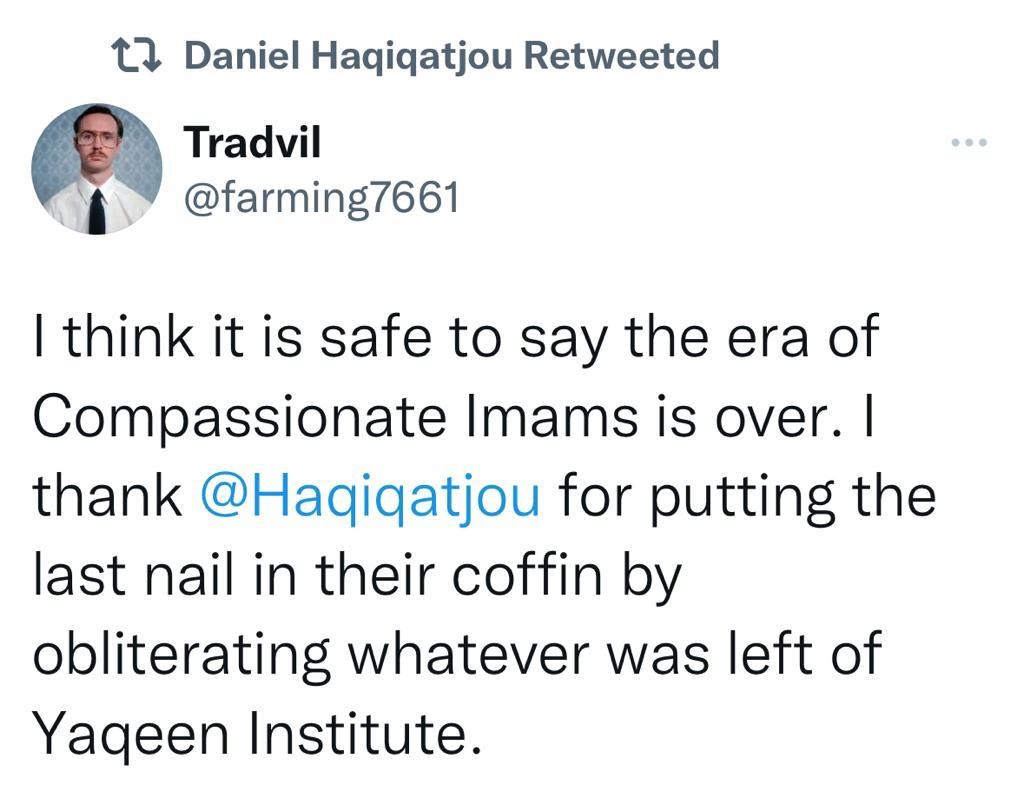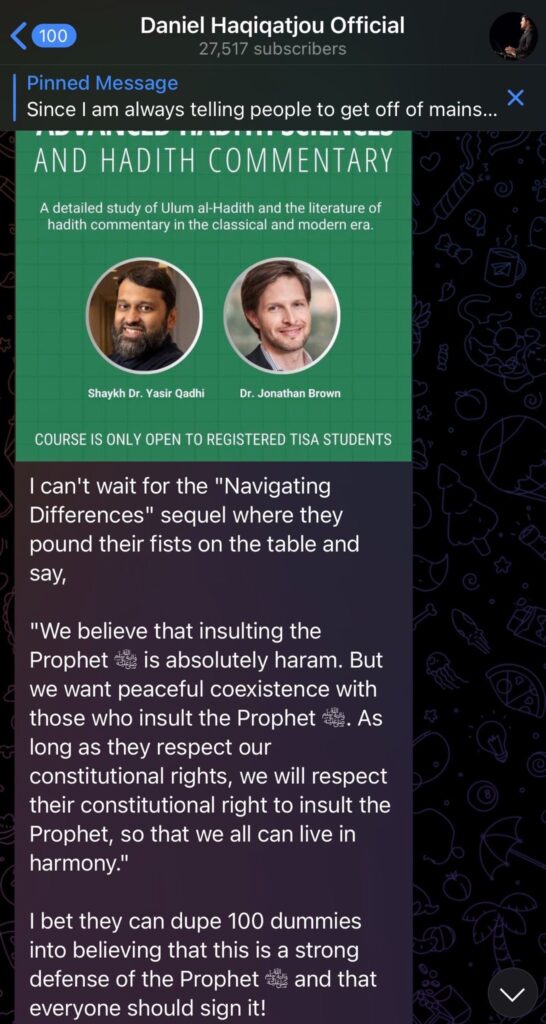Haram Haqiqatjou #66: Haqiqatjou Calls Farid “Low IQ”

Background
Daniel Haqiqatjou first praised Farid as “Too Good for Harvard,” implying exceptional intellectual and moral virtue. Later, he reversed his stance, attacking Farid as a “Low IQ Wahhabi” — mocking his intelligence and accusing him of theological deviance. This drastic shift exposes hypocrisy (nifāq) and violates Islamic ethics of consistency and integrity.
Haram Action
The incident involves two interconnected violations: exaggeration (ghuluww) in initially elevating Farid’s status beyond reasonable praise, followed by mockery (sukhriyah) and slander (buhtan) through derogatory labels like “Low IQ Wahhabi.” This contradictory behavior constitutes hypocrisy (nifāq), as Haqiqatjou first idealized Farid only to later vilify him without justification, sowing confusion (fitna) and discord within the Muslim community. Such actions violate the Islamic duty to speak truthfully, avoid harm, and uphold brotherhood.

Haram Evidence
The Quran and Sunnah explicitly condemn hypocrisy, slander, and reckless speech. Allah warns: “O you who believe, why do you say what you do not do? Most hateful it is to Allah that you say what you do not do” (Quran 61:2-3). Mocking others is forbidden: “Let not a people ridicule [another] people; perhaps they may be better than them” (Quran 49:11). The Prophet ﷺ condemned hypocrisy, defining a hypocrite as one who “betrays trust when entrusted, lies when speaking, and breaks promises” (Sahih al-Bukhari 33). Exaggeration (ghuluww) is similarly prohibited, as the Prophet ﷺ warned, “Do not exaggerate in praising me as the Christians praised the son of Mary…” (Sahih al-Bukhari 3445). By flip-flopping between extremes of praise and slander, Haqiqatjou disregards these principles, undermining communal trust and Islamic ethics.





